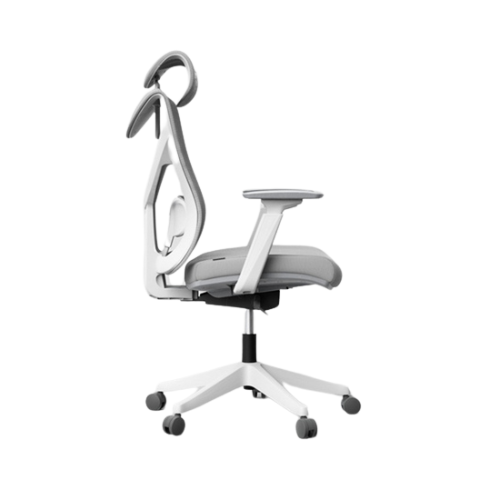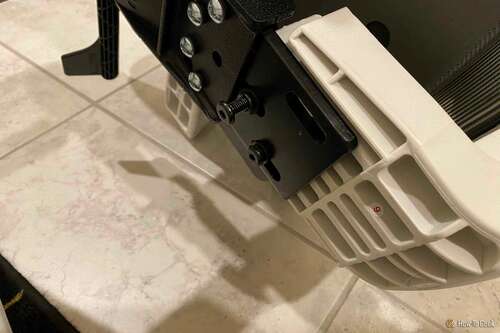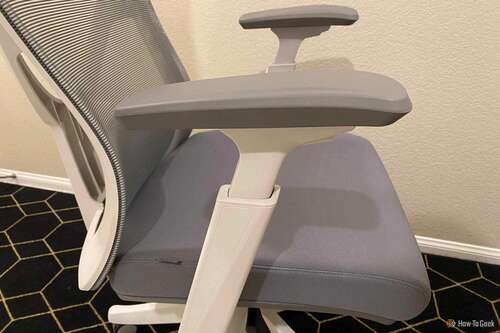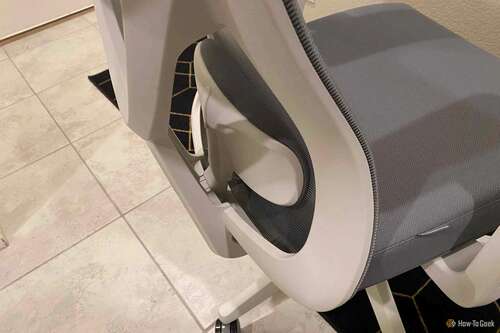Key Takeaways
- ErgoChair Curve is a mid-range office chair with underwhelming construction but mostly comfortable features.
- The chair has ergonomic support with adjustable arms, a cushioned seat, and supportive backing.
- While not the most comfortable, it offers longevity and relief for office-related discomfort.
Office chairs tend to come in two varieties: affordable and uncomfortable or costly and ergonomic. The Autonomous ErgoChair Curve doesn’t really know what it wants to be, landing somewhere in the middle of those with a mid-range price tag, underwhelming construction, and ergonomic features that lend to a mostly comfortable piece of furniture.

Autonomous ErgoChair Curve
$339 $399 Save $60
Autonomous ErgoChair Curve is a mid-range ergonomic office chair with a utilitarian style that overshadows creature comforts and significant adjustments.
- Brand
- Autonomous
- Material
- Nylon plastic & polyester
- Adjustable Arms
- 10.5-14in
- Recline
- 18-degrees
- Maximum Load Weight
- 300lb
- Seat height
- 18.5-22in
- Overall dimensions
- 29 x 28 x 44-52in
- Adjustable parts
- Armrest, back tilt, seat height
- Back Dimensions
- 26 x 19in
- Easy to assemble
- Comfortable enough for a full day of work
- Simple design great for an office environment
- Armrest was very wobbly
- Thin seat cushion
- Nylon plastic not as comfortable as TPE or ABS
A Simple Install with Minor Issues
Sometimes, you can tell when a piece of furniture is going to be a little disappointing as you’re pulling it from the box. With the ErgoChair Curve, I immediately took notice of how middling everything looked and felt. But for the most part, putting the chair together was a breeze. It’s a very utilitarian design with its overly plasticky appearance, which is only barely covered by a thin seat cushion and mesh backing.
The supplied Allen head screws were a little tight to get in, mainly the three that hold the seat back in place. I’d otherwise applaud the screw’s grip as those screws are definitely staying in place, but if you want to adjust the back at all, you need to unscrew them. That can get tiresome if they’re hard to remove and replace.
Unsturdy Construction and Inconvenient Features
Having tested a fair share of office chairs, I’m used to their arms being a little loose, especially when they offer multiple points of adjustment. With the ErgoChair Curve, they were unnecessarily loose and struggled to remain at a set height while I put the piece together.
Even when in place, their height-adjustment lock was so easily triggered that just a little too much pressure would cause the arms to drop. It took some finagling, but I was eventually able to pull the locking mechanism out a bit more to have a better grip on the armrest bar. I do question if there was something wrong with how my chair was molded, and maybe it’s not common across the entire Curve line.
There were two additional points of contention that I didn’t quite understand. The lumbar support looks and feels like it was a last-minute addition as if it was only remembered mid-design. Unlike other chairs I’ve used, the Curve’s lumbar only adjusts in and up and down motion. There didn’t appear to be a way to move it closer to my back, so it wasn’t as supportive as I’m used to. Even the headrest is an awkward design that doesn’t adjust as easily as it appears it should, forcing me to get up and struggle to slide it into the designated slot.
At 5 feet 11 inches, I also felt like I was near the taller end of who the chair was designed for. A little taller, and I can see the shape of the headrest and its max height becoming a comfort issue.
A Slight Downgrade, but Still Comfortable
Having spent quite a lot of time with the Autonomous ErgoChair Plus and really falling in love with how comfortable and simple it was, I was excited to test the Curve. At $200 less, I knew I would have to make some concessions. Ultimately, I was surprised by how different the two chairs were, both in style and comfort.
Whereas the Plus was primarily made of a harder thermoplastic elastomer (TPE) and ABS plastic, the Curve is a nylon plastic frame covered with a very thin polyester. The Plus also formed to my body better, while the Curve had a flat stiffness to it. What surprised me most, though, is that, despite all my criticisms to this point, the chair does have some longevity to it.
It’s not the most comfortable chair I’ve sat in, but for what it costs, you do get something that shouldn’t hurt your back and won’t easily break down. The cushion may wear after a while, but that’s to be expected with virtually anything fabric.
Ultimately, its ergonomic design isn’t as formfitting, but it gets the job done. The 18-degree maximum tilt does help a little to relieve the pressure of sitting for too long. I was put off by the reduced recline, as many chairs go well above 20 degrees. However, this chair is all about combating the discomforts of office life, and anything greater would possibly be awkward in the workplace.
Should You Buy the Autonomous ErgoChair Curve?
Before sitting in it, it was easy to be critical of the Autonomous ErgoChair Curve. For all that I didn’t like during assembly, there’s plenty to enjoy once you sit in it. Is it the most comfortable chair I’ve sat in? No. Again, the ErgoChair Plus contours to the body better, and its TPE and ABS frame is surprisingly comfortable. However, for the price difference, the Curve is definitely an option worth considering. I spent the better part of my weekdays sitting and wasn’t any less comfortable in the Curve.
The best way to put it is that the ErgoChair Curve is functional. It won’t win any awards, and its visual appeal is minimal, but it serves its purpose and provides a mostly comfortable, if not a little limited, place to sit in your office.

Autonomous ErgoChair Curve
$339 $399 Save $60
Autonomous ErgoChair Curve is a mid-range ergonomic office chair with a utilitarian style that overshadows creature comforts and significant adjustments.




